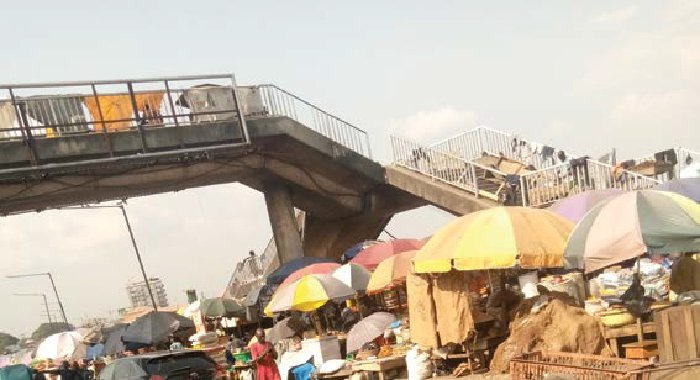
The Lagos State Government has issued a stern warning to traders operating illegally under key infrastructure points, including the Idumagbo Bridge and the Third Mainland Bridge.
These locations, particularly around Oja Oba and Adeniji Adele, will no longer be tolerated for informal trading as the state intensifies its flood mitigation efforts through major drainage and infrastructure projects.
This warning came after an inspection on Saturday, July 19, 2025, by the Commissioner for the Environment and Water Resources, Tokunbo Wahab. The tour highlighted significant progress in the state’s flood control initiatives and reinforced the need for public cooperation.
Wahab explained that the ongoing construction of the Onikoyi/Turnbull drainage collector, which will link Banana Island to Park View Estate, is expected to significantly reduce flooding in these high-risk areas upon completion. He added that several street-level drains are being expanded to connect with larger collectors to improve runoff management, particularly around Banana Island.
Despite these efforts, the commissioner expressed concern over the return of unregulated trading under bridge areas that had previously been cleared, emphasizing that such activities undermine the state’s infrastructure goals.
“Public safety must come before informal trading,” Wahab stated. “These structures are critical flood control assets and are not meant to serve as markets.”
He warned that traders who continue to ignore these directives are putting themselves and others at risk, and often shift blame to the government when preventable disasters occur.
To prevent further misuse of these spaces, the Lagos State Parks and Gardens Agency (LASPARK) has approved plans to convert these areas into green spaces and regulated parks. Until these plans are executed, Wahab stressed that all illegal trading activities in these zones must stop.
“Lagos is determined to build systems that safeguard lives and property, but we need the cooperation of every resident. Respecting these directives is essential for the success of our resilience and infrastructure projects,” he concluded.


